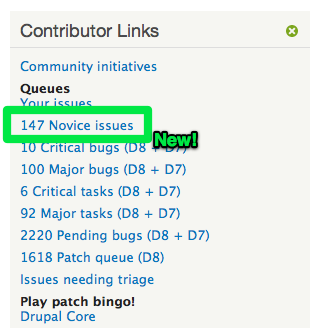Webchick's "plain Drupal English" Guide to the Remaining Drupal 8 Critical Issues: DrupalCon Bogotá Edition
(Apologies for the atrocious state of the HTML that follows; this content is originally from this Google Doc.)
Updated Feb 15, 2015 with "needs triage" marker, per xjm.
DrupalCon Bogotá just finished up, and critical issue-wise we've managed to stay in the 50s for a few days (down from a high of 150 in the summer of 2013!), so now seems like as good a time as any to write down what's left to ship Drupal 8!
This post will attempt to document all of the remaining 55 criticals (as of this writing), and attempt to offer a somewhat "plain English" (or at least "Drupal English" ;)) description of each, loosely categorized into larger areas in which we could really use extra help. There are over 2,600 contributors to Drupal 8 at this time, please join us!
(Note: These descriptions might not be 100% accurate; this is my best approximation based on the issue summary and last few comments of each issue. If I got the description of your pet issue wrong, please update your issue summary. ;))

